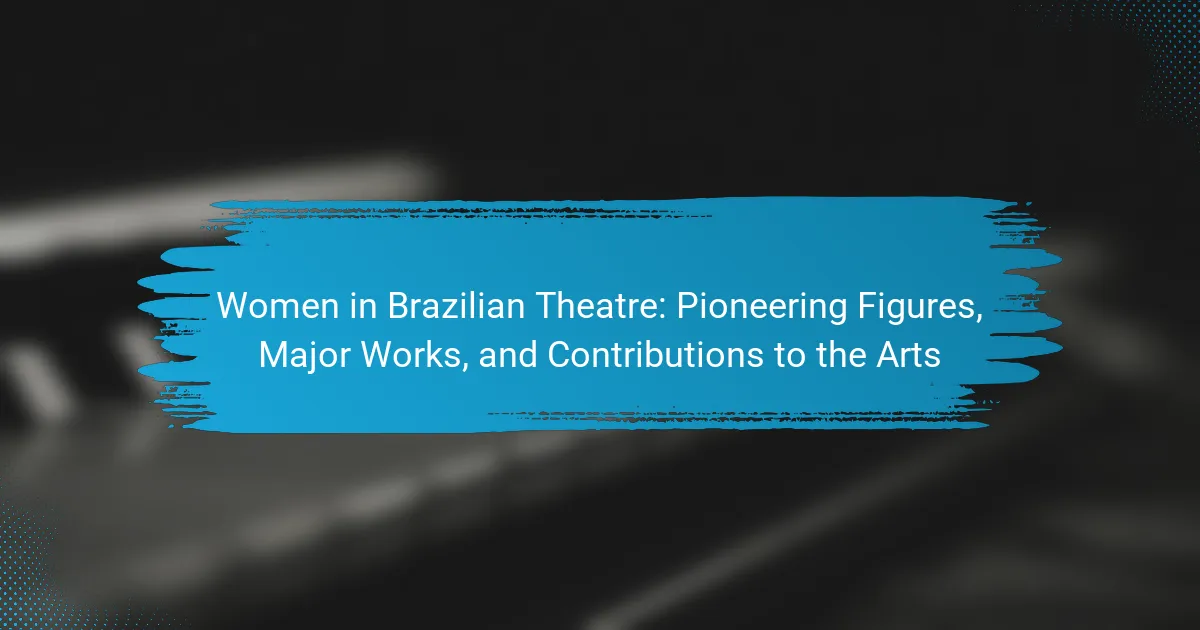The article focuses on pioneering women in Brazilian theatre, highlighting key figures such as Maria Clara Machado, Zélia Gattai, and Ruth de Souza, who significantly influenced the theatre landscape. It discusses their major contributions, including the establishment of children’s theatre and the adaptation of important works by female directors. Additionally, the article explores the broader […]
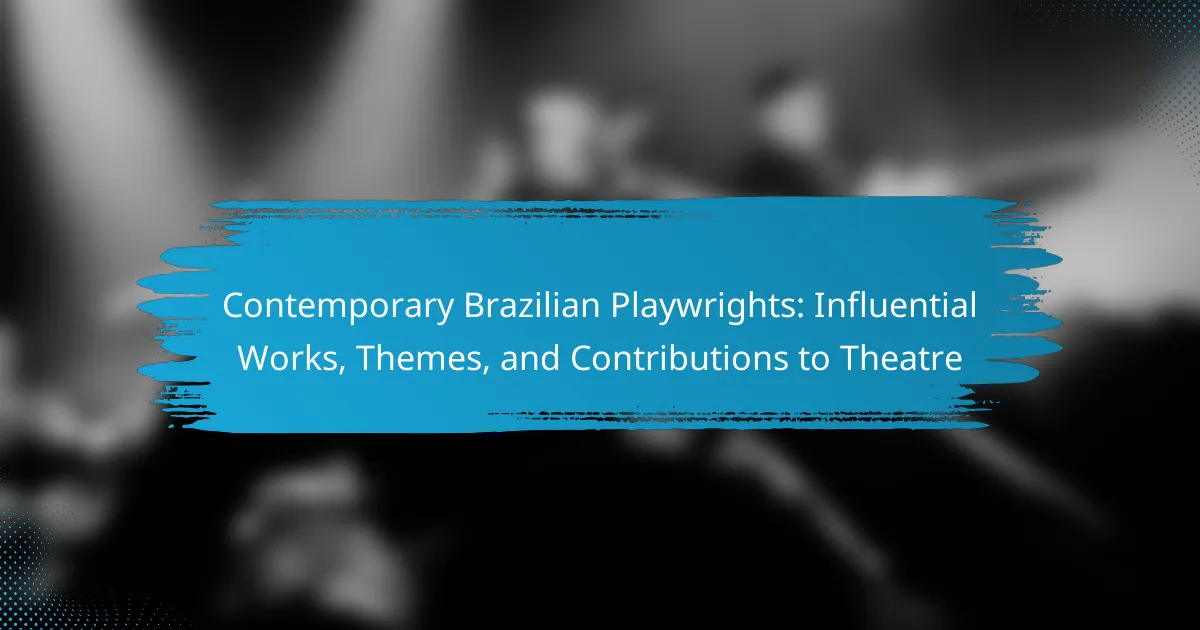
Contemporary Brazilian Playwrights: Influential Works, Themes, and Contributions to Theatre
Contemporary Brazilian playwrights are recognized for their innovative storytelling and engagement with pressing social issues, including identity, politics, and cultural heritage. Notable figures like Ariano Suassuna, Plínio Marcos, Aline Bei, Julián Sanches, and Leandro Andrade have made significant contributions to theatre, creating works that challenge traditional narratives and reflect the complexities of Brazilian society. Their […]

The Use of Dance in Brazilian Theatre: Styles, Techniques, and Notable Performances
Dance is a fundamental component of Brazilian theatre, significantly enhancing storytelling and cultural expression. It encompasses various styles, including samba, capoeira, and folk dances, each contributing to the emotional depth and narrative richness of performances. Notable productions such as “O Rei da Vela,” “A Ópera do Malandro,” and “Carmen Miranda: A História de uma Rainha” […]

The Role of Samba in Brazilian Theatre: Cultural Roots, Performance Styles, and Iconic Shows
Samba is a significant cultural entity in Brazilian theatre, characterized by its integration of music, dance, and storytelling. This genre not only enhances theatrical performances but also reflects the socio-political dynamics of Brazil, addressing themes such as identity, resistance, and celebration rooted in Afro-Brazilian culture. Historical events like Carnival demonstrate samba’s influence on theatrical productions, […]

Brazilian Theatre for Children: Educational Benefits, Popular Plays, and Engaging Techniques
Brazilian Theatre for Children is a specialized genre of performing arts aimed at young audiences in Brazil, combining storytelling, music, and visual elements to engage and educate. The genre often addresses educational themes and social issues, fostering creativity and critical thinking through interactive performances. Notable plays such as “O Pequeno Príncipe” and “A Menina do […]

The Role of Improvisation in Brazilian Theatre: Techniques, Notable Groups, and Audience Engagement
Improvisation is a vital component of Brazilian theatre, enhancing creativity, spontaneity, and audience engagement. This article explores various improvisational techniques employed in Brazilian theatre, highlighting notable groups such as Grupo de Teatro da Universidade Federal do Rio de Janeiro, Grupo de Teatro Improvável, and Barbixas. These groups utilize improvisation to create unique narratives and foster […]

The Evolution of Brazilian Musical Theatre: Key Productions, Genres, and Influential Figures
The article explores the evolution of Brazilian musical theatre, highlighting its significant productions, genres, and influential figures over the decades. Beginning in the late 19th century with operettas, the genre gained prominence with the premiere of “O Guarani” in 1870. Throughout the 20th century, Brazilian musical theatre integrated samba and bossa nova, with key contributions […]
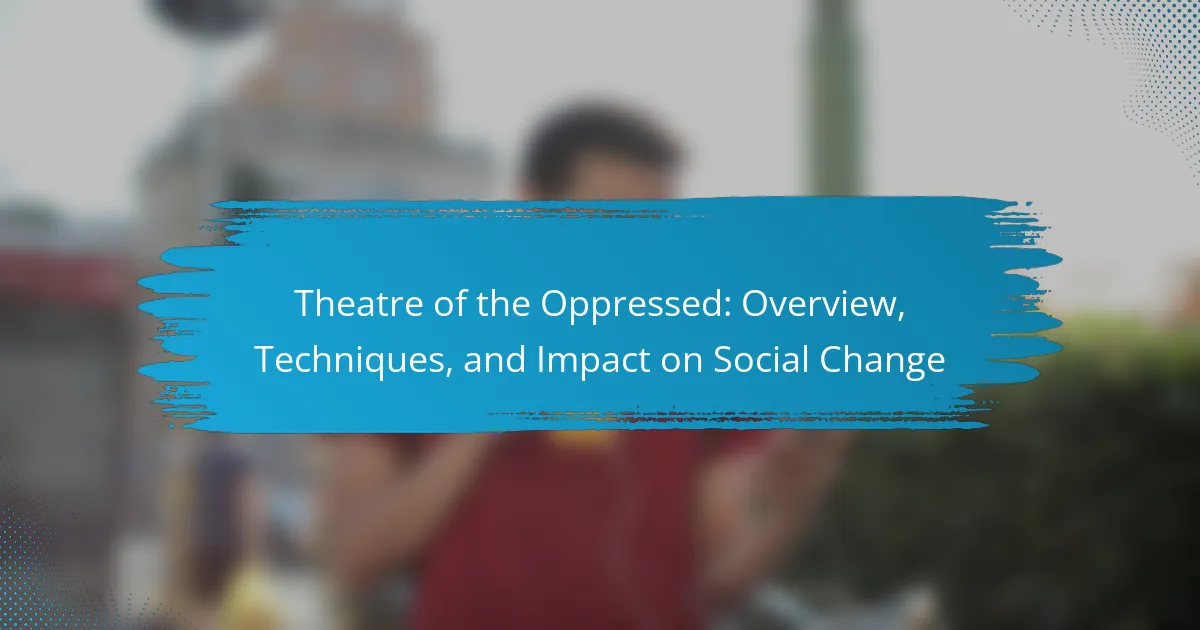
Theatre of the Oppressed: Overview, Techniques, and Impact on Social Change
The Theatre of the Oppressed is a theatrical methodology developed by Augusto Boal, designed to facilitate social and political change through interactive performances that engage audiences as active participants, referred to as “spect-actors.” This article provides an overview of the various techniques employed within this methodology, including Forum Theatre, Image Theatre, Invisible Theatre, Legislative Theatre, […]
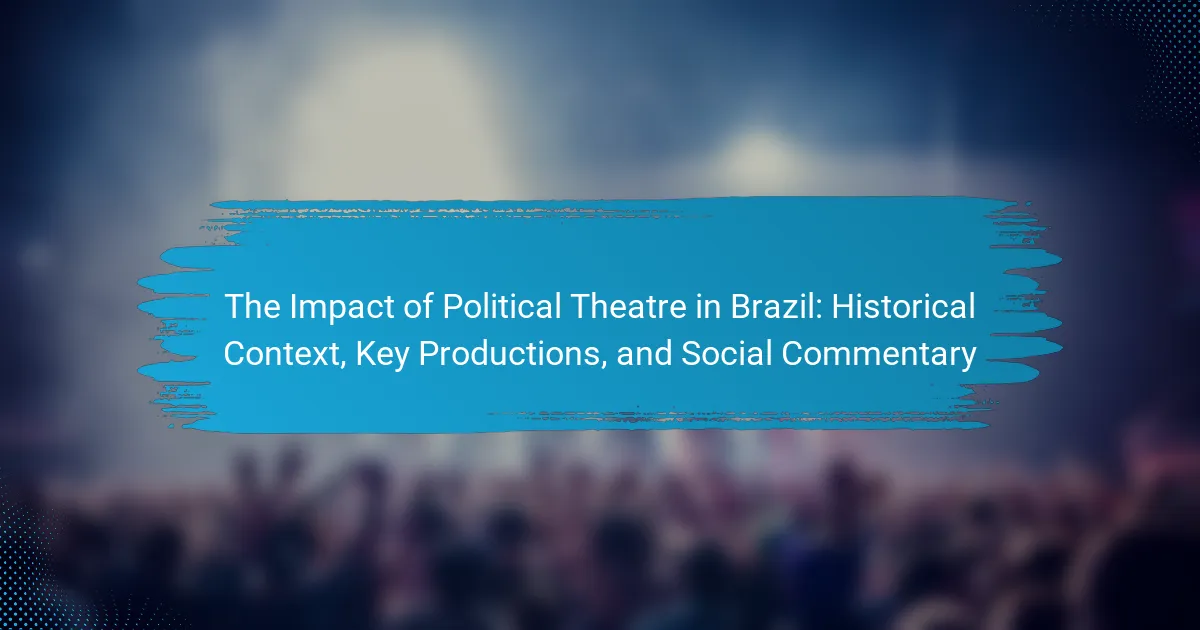
The Impact of Political Theatre in Brazil: Historical Context, Key Productions, and Social Commentary
Political theatre in Brazil is a significant cultural phenomenon that shapes social and political discourse. It emerged during periods of dictatorship, particularly from 1964 to 1985, serving as a platform for critique of governmental actions and societal issues. Key productions such as “O Rei da Vela,” “A Revolução dos Bichos,” and “Eles Não Usam Black-Tie” […]
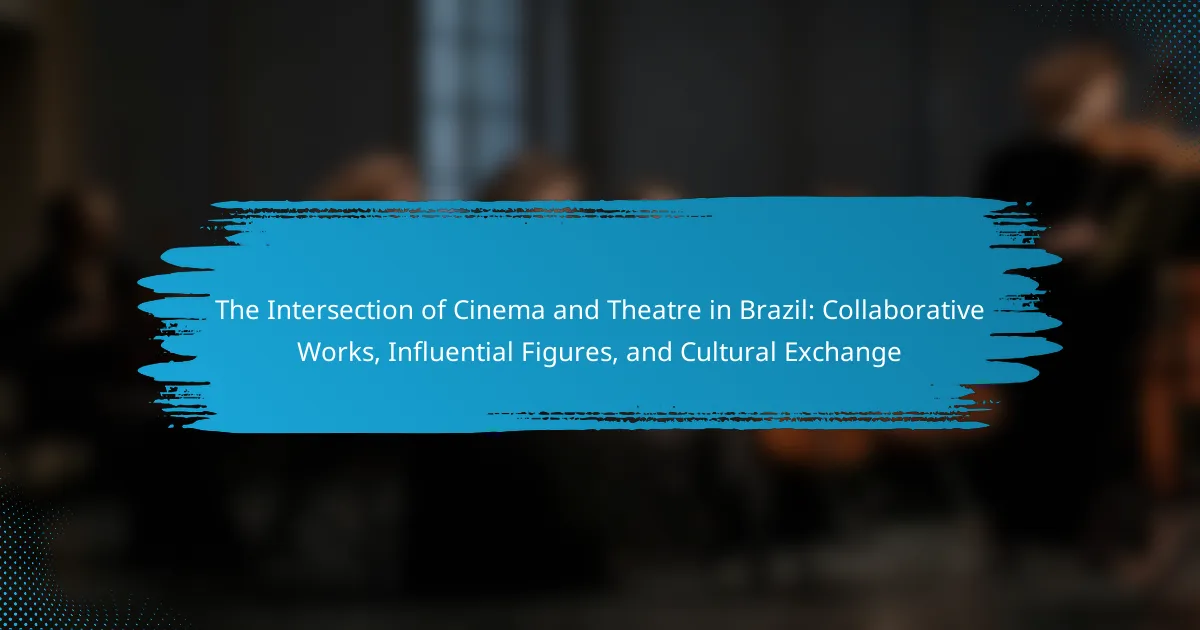
The Intersection of Cinema and Theatre in Brazil: Collaborative Works, Influential Figures, and Cultural Exchange
The article examines the intersection of cinema and theatre in Brazil, highlighting the collaborative works and cultural exchange that characterize these two artistic mediums. It details how Brazilian cinema draws inspiration from theatrical traditions, with notable filmmakers incorporating theatrical elements into their storytelling. The piece also explores the influence of international narratives and styles on […]
